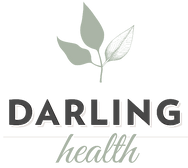
The Gut-Brain Connection: How Your Gut Impacts Your Mood, Mind, and Well-Being

Author: Caitlin Pickering, Naturopath
Recent research reveals that your gut is far more than just a digestion powerhouse —it plays a significant role in shaping how you think, feel, and function. This communication between your gut and brain is called the gut-brain axis, and itʼs crucial for regulating your mood, cognitive function, immune system, and overall health.
While itʼs long been understood that emotional states like anxiety and stress can affect digestion, emerging science is showing that the relationship goes both ways: your gut health can deeply influence your mental and emotional state as well.
A Two-Way Street: Constant Communication
The gut and brain are in constant communication via a network that links the central nervous system (the brain and spinal cord) with the enteric nervous system (often called the "second brain"), found in the lining of the gastrointestinal tract. This communication happens through multiple channels: the vagus nerve, immune signals, neurotransmitters, and even microbial metabolites like short-chain fatty acids (SCFAs).
One of the most significant neurotransmitters for mood regulation, serotonin, is produced primarily in the gut. Additionally, gut bacteria influence levels of dopamine and GABA, which are key for focus, motivation, and calming the nervous system. When the gut is out of balance—whether due to infection, inflammation, dysbiosis (microbial imbalance), or poor dietary choices—it can have a significant impact on mental health.
Gut Microbiome and Mental Health
The trillions of microbes in your digestive system—collectively known as the gut microbiome—play a key role in regulating the bodyʼs stress response system, known as the HPA axis. Disruptions to this microbiome can exacerbate or contribute to various mental health conditions, including:
〰 Anxiety
〰 Depression
〰 Autism spectrum disorder (ASD)
〰 Alzheimerʼs
Certain probiotics, such as strains of Lactobacillus and Bifidobacterium, have been shown to help alleviate symptoms of these conditions. Research suggests that probiotics work by reducing inflammation, balancing neurotransmitters, and improving communication between the gut and brain.
From a naturopathic perspective, probiotics are just one part of a much broader, whole-person approach to supporting the gut-brain connection. While they can be helpful, we also consider other contributing factors—like diet, sleep, stress, inflammation, and nutrient status - all of which can be assessed through a thorough case analysis and, where appropriate, functional testing.
Inflammation and the Leaky Gut Connection
When the integrity of the gut lining becomes compromised—often referred to as intestinal permeability or leaky gut—bacteria and undigested food particles can leak into the bloodstream, triggering an immune response. This low-level, chronic inflammation is believed to contribute to the development of mental health issues like depression and cognitive decline.
Research suggests that cytokines (inflammatory molecules) released by the gut can influence neuro-inflammation, potentially driving symptoms of mood disorders and cognitive impairment.
Stress, Digestion, and Nervous System Regulation
Most of us have experienced how stress impacts digestion—like feeling a loss of appetite during stressful times or even experiencing nausea before a major deadline or presentation. Chronic stress, however, can shift the body into a state of sympathetic dominance (the fight-or-flight response), which slows down digestion, reduces the secretion of digestive enzymes, and weakens the gut barrier.
This can create a feedback loop: stress impairs digestion → digestion becomes compromised → gut sends distress signals to the brain → more stress and mood symptoms. Supporting nervous system regulation — through breathwork, vagal tone stimulation (such as deep breathing, cold exposure, humming, singing, meditation, or yoga), sleep hygiene, and a whole foods diet — can really help break that cycle and bring things back into balance.
References
Appleton J. (2018). The Gut-Brain Axis: Influence of Microbiota on Mood and Mental Health. Integrative medicine (Encinitas, Calif.), 17(4), 28-32.
Foster, J. A., Rinaman, L., & Cryan, J. F. (2017). Stress & the gut-brain axis: Regulation by the microbiome. Neurobiology of stress, 7, 124-136. https://doi.org/10.1016/j.ynstr.2017.03.001
Margolis, K. G., Cryan, J. F., & Mayer, E. A. (2021). The Microbiota-Gut-Brain Axis: From Motility to Mood. Gastroenterology, 160(5), 1486-1501. https://doi.org/10.1053/j.gastro.2020.10.066
Petrut, S.-M., Bragaru, A. M., Munteanu, A. E., Moldovan, A.-D., Moldovan, C.-A., & Rusu, E. (2025). Gut over Mind: Exploring the Powerful Gut–Brain Axis. Nutrients, 17(5), 842. https://doi.org/10.3390/nu17050842


